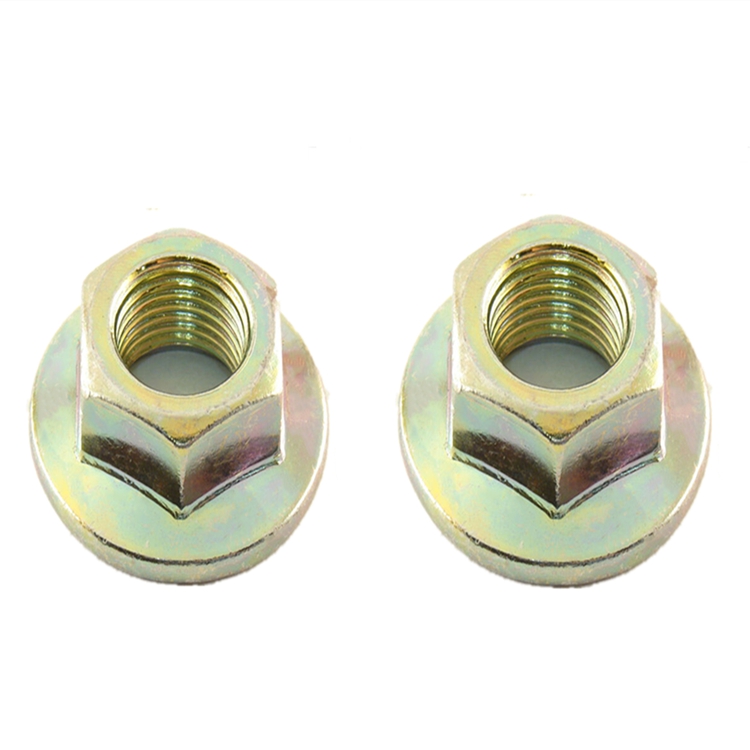safety bolts
Feb . 20, 2025 01:27 Back to list
safety bolts
Safety bolts are an essential component in many industries, crucial for ensuring the integrity and safety of various structures. As these bolts are employed in applications ranging from construction and automotive to heavy machinery, understanding their functionality, specifications, and importance is vital. This article delves into the nuances of safety bolts, leveraging years of industry expertise and real-world experience to provide a comprehensive guide to selecting and utilizing these critical components effectively.
Installation practices further determine the reliability and effectiveness of safety bolts. Torque specifications must be strictly adhered to; over-tightening can lead to bolt damage, while under-tightening increases the risk of loosening over time, compromising structural integrity. Utilizing a calibrated torque wrench, whether digital or manual, is essential in achieving precise torque measurements, ensuring that every bolt functions optimally under operational stresses. Real-world applications highlight the critical nature of proper safety bolt selection and use. In the automotive industry, for instance, wheel bolts must endure cyclic stresses and constant exposure to weather elements. A lapse in selecting, inspecting, or maintaining these bolts can lead to catastrophic failures. Regular inspections and adherence to manufacturer specifications are non-negotiable practices for industry professionals, reflecting a commitment to excellence and safety. Furthermore, in industries like construction, where safety is paramount, the reliability of safety bolts is non-negotiable. Manufacturers of safety bolts must comply with stringent industry standards and certifications, such as the American National Standards Institute (ANSI) and the International Organization for Standardization (ISO), guaranteeing users the necessary assurance of quality and performance. Trustworthiness in tool and equipment suppliers also plays a significant role. Reputable manufacturers provide detailed product descriptions, technical support, and warranties, fostering trust and long-term relationships with clients. Engaging with suppliers who prioritize safety enhances the project's success, enabling professionals to focus on innovation and execution, secure in the reliability of their choice of components. In conclusion, safety bolts are fundamental to the dependability and safety of countless structural applications. With informed decisions based on material science, precise engineering, and authoritative industry standards, professionals can ensure these components perform their crucial roles effectively. By prioritizing quality, proper selection, and installation, safety bolts serve as the cornerstone of innovative and secure engineering solutions, earning the trust and confidence of industry experts and consumers alike.


Installation practices further determine the reliability and effectiveness of safety bolts. Torque specifications must be strictly adhered to; over-tightening can lead to bolt damage, while under-tightening increases the risk of loosening over time, compromising structural integrity. Utilizing a calibrated torque wrench, whether digital or manual, is essential in achieving precise torque measurements, ensuring that every bolt functions optimally under operational stresses. Real-world applications highlight the critical nature of proper safety bolt selection and use. In the automotive industry, for instance, wheel bolts must endure cyclic stresses and constant exposure to weather elements. A lapse in selecting, inspecting, or maintaining these bolts can lead to catastrophic failures. Regular inspections and adherence to manufacturer specifications are non-negotiable practices for industry professionals, reflecting a commitment to excellence and safety. Furthermore, in industries like construction, where safety is paramount, the reliability of safety bolts is non-negotiable. Manufacturers of safety bolts must comply with stringent industry standards and certifications, such as the American National Standards Institute (ANSI) and the International Organization for Standardization (ISO), guaranteeing users the necessary assurance of quality and performance. Trustworthiness in tool and equipment suppliers also plays a significant role. Reputable manufacturers provide detailed product descriptions, technical support, and warranties, fostering trust and long-term relationships with clients. Engaging with suppliers who prioritize safety enhances the project's success, enabling professionals to focus on innovation and execution, secure in the reliability of their choice of components. In conclusion, safety bolts are fundamental to the dependability and safety of countless structural applications. With informed decisions based on material science, precise engineering, and authoritative industry standards, professionals can ensure these components perform their crucial roles effectively. By prioritizing quality, proper selection, and installation, safety bolts serve as the cornerstone of innovative and secure engineering solutions, earning the trust and confidence of industry experts and consumers alike.
Next:
Latest news
-
Unlocking Industrial Strength: The Complete Guide to Better Bolts
NewsNov.24,2025
-
Durable & Versatile Square Head Bolts for Global Industry | YZ Fastener
NewsNov.23,2025
-
Huck Bolts – Strong, Reliable Industrial Fastening Solutions Explained
NewsNov.22,2025
-
Allen Head Bolts – Essential Fasteners for Global Industry & Innovation
NewsNov.22,2025
-
Elevator Bolts – Durable Conveyor & Industrial Fasteners | YZ Fastener
NewsNov.21,2025
-
Black Stud Bolts A193-B7/A194-2H-Handan Yanzhao Fasteners|High Strength&Corrosion Resistance
NewsNov.21,2025
